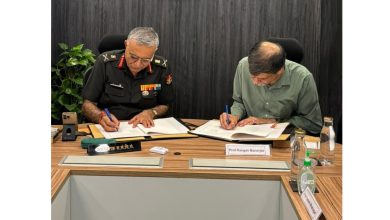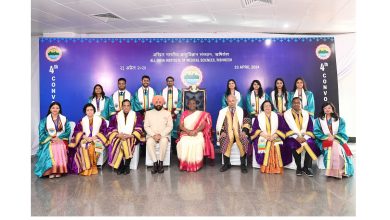
Bangalore: Dr. Ananthvikas Jayaram, Chief of Lab, Anand Diagnostic Laboratory – a Neuberg Associate, and Neuberg Anand Reference Laboratory (ADL – NARL) was invited to be a guest speaker at the 21st INDO-US Flow Cytometry Workshop on the ‘Clinical Applications of Flow Cytometry’ at M S Ramaiah Medical College, Bangalore on January 29 – 30, 2020.
At the workshop, Dr. Ananthvikas spoke on Paroxysmal Nocturnal Hemoglobinuria (PNH) and the diagnostics of Primary Immunodeficiency disorders (PID).
Explaining PNH, Dr. Ananthvikas said, “PNH is a rare disease in which red blood cells break down earlier than normal. People with this disease have blood cells that are missing a gene called PIG-A. This gene allows a substance called glycosyl-phosphatidylinositol (GPI) to help certain proteins stick to cells. Without PIG-A, important proteins cannot connect to the cell surface and protect the cell from substances in the blood called complement. As a result, red blood cells break down too early. The red cells leak haemoglobin into the blood, which can pass into the urine. This can happen at any time, but is more likely to occur during the night or early morning. The disease can affect people of any age, and may be associated with aplastic anaemia, myelodysplastic syndrome, or acute myelogenous leukaemia.”
He went on to talk about the diagnostics of Primary Immunodeficiency disorders. Primary Immune Deficiencies (PIDs) are a group of inherited disorders that affect the development and / or function of the immune system. As per an estimate, 1 among 1200 individuals are affected with PID. This incidence is however increased in populations with a higher degree of consanguinity. These diseases usually result in recurrent or persistent severe infections, autoimmunity, auto-inflammation or malignancies.
“Though not uncommon, PIDs are grossly underdiagnosed due to lack of awareness about these diseases. While most children with persistent infections may have a normal underlying immune system, it is important to recognise a child with an underlying PID so that further investigations can be performed. Prompt and early diagnosis not only helps initiate appropriate treatment, but also helps further genetic counselling for the family,” says Dr. Ananthvikas.
The two-day Workshop was organized by M S Ramaiah Medical College, Bangalore in association with ISAC (International Society for Advancement of Cytometry) and TETC (Trust for Education and Training in Cytometry).




